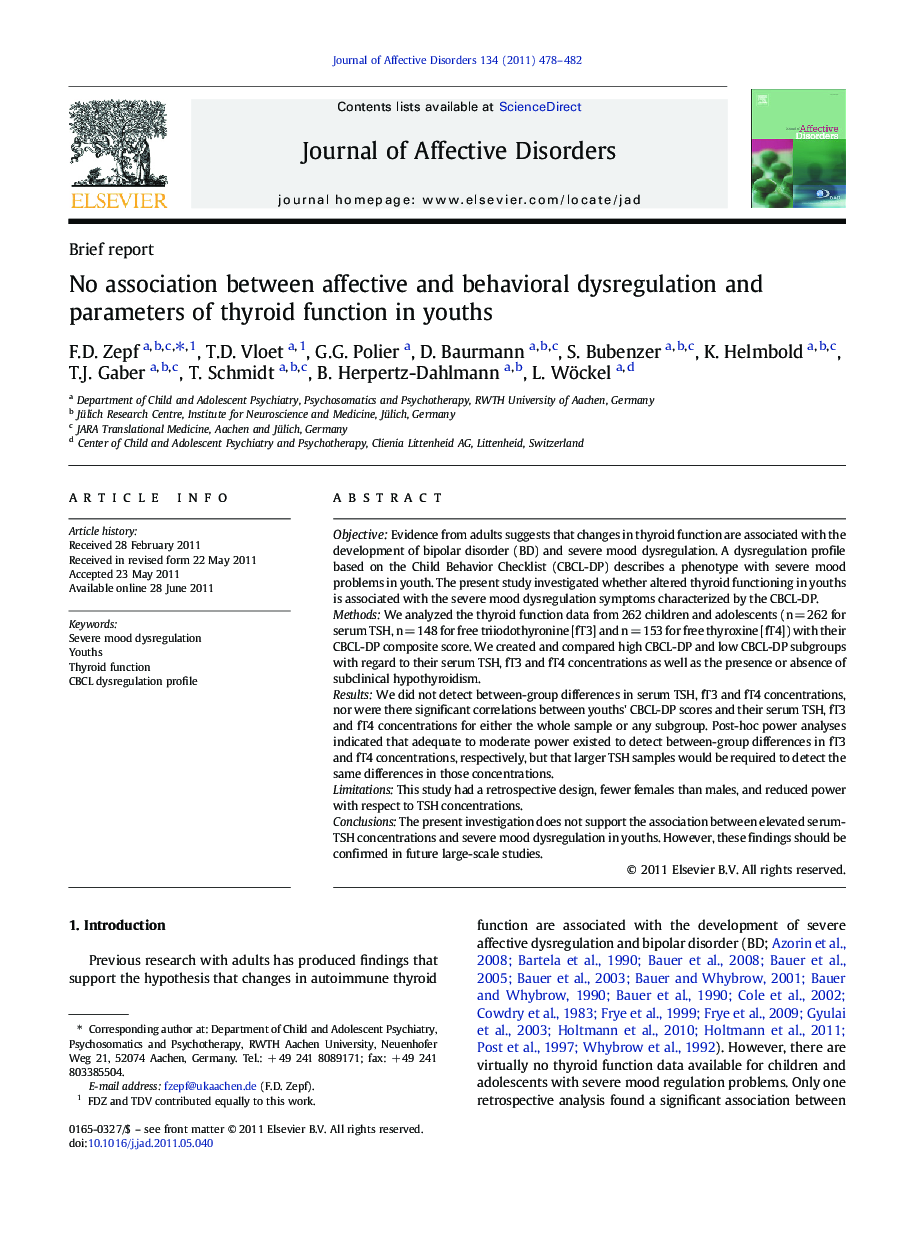| Article ID | Journal | Published Year | Pages | File Type |
|---|---|---|---|---|
| 6235234 | Journal of Affective Disorders | 2011 | 5 Pages |
ObjectiveEvidence from adults suggests that changes in thyroid function are associated with the development of bipolar disorder (BD) and severe mood dysregulation. A dysregulation profile based on the Child Behavior Checklist (CBCL-DP) describes a phenotype with severe mood problems in youth. The present study investigated whether altered thyroid functioning in youths is associated with the severe mood dysregulation symptoms characterized by the CBCL-DP.MethodsWe analyzed the thyroid function data from 262 children and adolescents (n = 262 for serum TSH, n = 148 for free triiodothyronine [fT3] and n = 153 for free thyroxine [fT4]) with their CBCL-DP composite score. We created and compared high CBCL-DP and low CBCL-DP subgroups with regard to their serum TSH, fT3 and fT4 concentrations as well as the presence or absence of subclinical hypothyroidism.ResultsWe did not detect between-group differences in serum TSH, fT3 and fT4 concentrations, nor were there significant correlations between youths' CBCL-DP scores and their serum TSH, fT3 and fT4 concentrations for either the whole sample or any subgroup. Post-hoc power analyses indicated that adequate to moderate power existed to detect between-group differences in fT3 and fT4 concentrations, respectively, but that larger TSH samples would be required to detect the same differences in those concentrations.LimitationsThis study had a retrospective design, fewer females than males, and reduced power with respect to TSH concentrations.ConclusionsThe present investigation does not support the association between elevated serum-TSH concentrations and severe mood dysregulation in youths. However, these findings should be confirmed in future large-scale studies.
